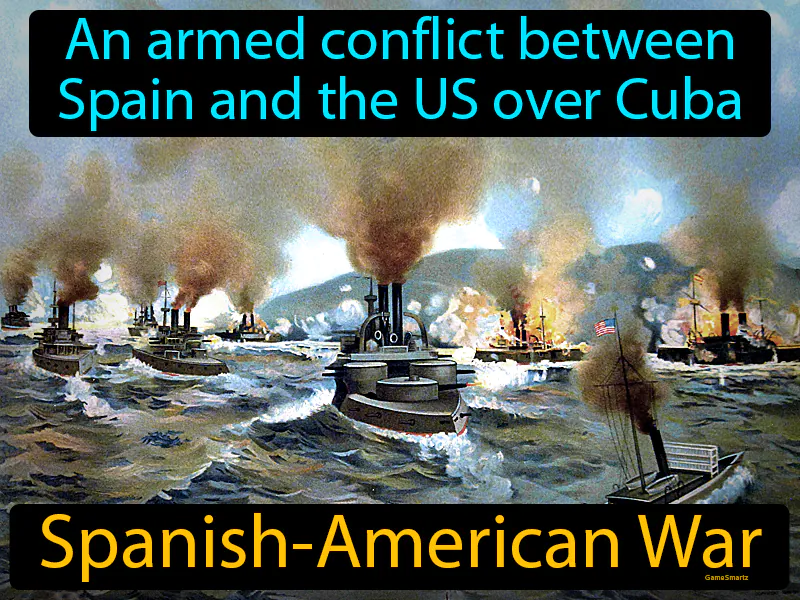Spanish-American War

The Spanish-American War, fought in 1898, was important because it marked the United States' emergence as a global power, signaling a shift toward imperialism and overseas expansion. This conflict highlighted tensions such as the struggle for control over territories and the influence of media on public opinion, issues that remain relevant today. For example, debates about military intervention and the role of the U.S. in global affairs continue to affect political discussions and policies. On a personal level, the war's outcome led to the U.S. acquiring territories like Puerto Rico, which impacts citizenship and cultural identity for people living there. Additionally, the war's legacy influences travel and trade relationships, affecting what products people buy and how they connect with the world.
Practice Version

Spanish-American War: An armed conflict between Spain and the US over Cuba. Spanish-American War. The Spanish-American War was a brief conflict in 1898 where the United States defeated Spain, leading to the independence of Cuba and US control over Puerto Rico, Guam, and the Philippines.